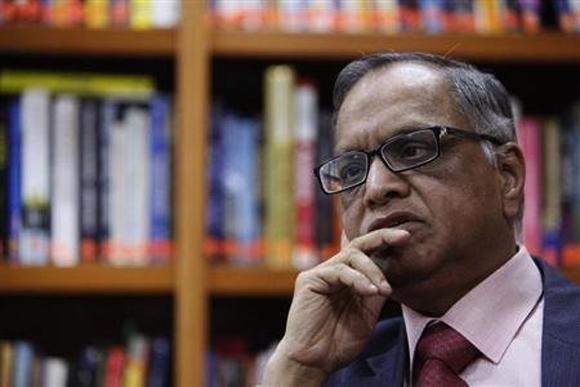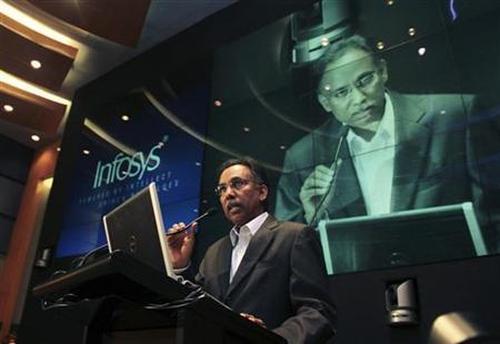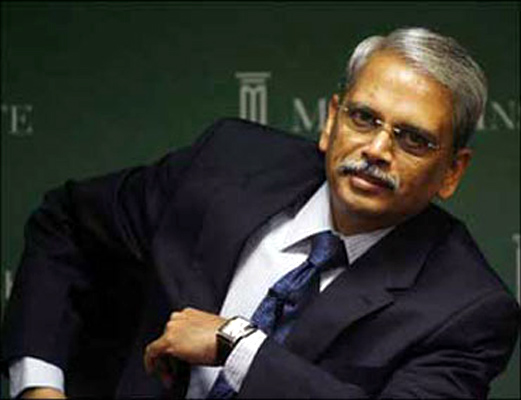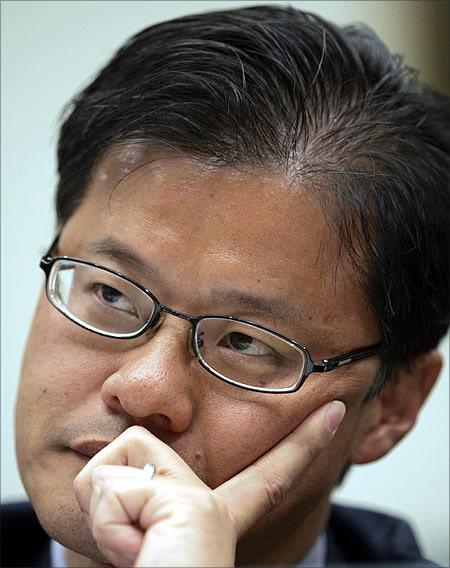 | « Back to article | Print this article |
Succession plan: Why India Inc struggles to find a leader
Too many corporate leaders cherish the crown of indispensability, says Shyamal Majumdar
At 68, it is no big deal to make a comeback as the executive head of a company from where one had retired long ago.
Infosys' "new" Executive Chairman N R Narayana Murthy's counterparts in many other companies have crossed the 70-year mark, but are either still slogging to find a successor, or prompting their companies to extend the retirement age, or saying they have still not applied their mind to succession planning.
To be sure, India Inc is no exception. Last month, Procter & Gamble (P&G) replaced Bob McDonald with his predecessor A G Lafley, 65. Asked why he was coming back to the company well past P&G's retirement age for chief executive officers (CEOs), Lafley told a news agency his mental age is only 45.
Lafley could have said the same thing about Murthy as well - going by the latter's formidable track record as Infosys chairman (1991 to 2006 in an executive capacity and till August 2011 in a non-executive capacity).
Click NEXT to read more...
Succession plan: Why India Inc struggles to find a leader
Making yourself indispensable is a skill that nearly every leader seems to have perfected to a fine art.
Corporate history has shown us how founders are great at starting and building, but usually terrible at letting go and allowing the organisation to grow into a second phase of life without them, with a different leader at the helm.
But if Murthy's comeback came as a real surprise to many, the reason is Murthy himself. Apart from repeated denials of media reports about his possible return to Infosys, Murthy was known for his obsession about following the company's rules.
That explained why he had walked into the sunset as soon as he had turned 65. That's also why Infosys strictly enforced the rule that a founder's family members would not have any role in the company.
Both these rules have now been broken by the man himself.
Click NEXT to read more...
Succession plan: Why India Inc struggles to find a leader
Some say a desperate Infosys had no option but to turn to Murthy to get out of the mess, and that his name itself will spell magic. Ironically, that itself can be interpreted as the great man's biggest failure.
It's inconceivable that he wasn't able to groom a single leader in the two decades that he was at the helm. And this is a company that prides itself on setting up one of the biggest leadership institutes in the country.
In the process, however, the position of the managing director (MD) & CEO has been made almost irrelevant. And the question that the Infosys board should answer is why go through the motion of keeping S D Shibulal in that post if he has been found so inadequate that an executive chairman's post had to be recreated.
Click NEXT to read more...
Succession plan: Why India Inc struggles to find a leader
The bigger question, of course, is what happens to succession planning at Infosys. The earlier assumption was that Infosys would have Kris Goplakrishnan as chairman and Shibulal as vice-chairman after the latter retires.
And there will be a MD & CEO from among the following three - B G Srinivas, V Balakrishnan and Ashok Vemuri. Murthy's five-year tenure as executive chairman has changed that equation since either Goplakrishnan or Shibulal will have to quit the company, unless, of course, Infosys decides to have the rather convoluted and please-all structure of having two non-executive vice-chairmen under the executive chairman and a MD & CEO.
Also, will anybody worth his salt want to work as MD under an executive chairman? Infosys has faced this situation before and lost some key leaders because of the unacknowledged glass ceiling. In that context, how is the situation different from the countless family-owned companies in India where all protestations about professional growth end just outside the corner office?
Click NEXT to read more...
Succession plan: Why India Inc struggles to find a leader
Also, under normal circumstances, Rohan Murty's inclusion as executive assistant to his father should have been a non-event. India Inc is replete with such examples - Wipro's Rishad Premji, for example. But Infosys faces itself in the line of fire for what would now be seen as a hypocritical stand.
For, isn't this the same company that kept on saying from all available public forums that it has taken a pledge of keeping company and family separate? Murthy can say anything to dismiss such talks, but the fact is his son will be seen as the face of the chairman inside the company and as an heir-apparent.
While shareholders await Murthy's Midas touch, the question that will linger for long is whether the Infosys board adopted a lazy, reactive approach to succession planning and failed to deliver on one of their chief obligations to shareholders - ensuring a frictionless change at the top, even two years after a superstar chairman retired.
Click NEXT to read more...
Succession plan: Why India Inc struggles to find a leader
In any case, bringing back a former chief is no guarantee of success. As The Economist has pointed out, examples of failed returnees abound.
The most spectacular failure was Kenneth Lay, who returned as CEO of Enron in 2001 when Jeffrey Skilling's frauds came to light, and who saw the company crumble in his hands.
Xerox's stock tumbled by more than 60 per cent during Paul Allaire's second innings as boss (which lasted only 15 months).
Jerry Yang failed dismally in his second stint at the helm of Yahoo!. Michael Dell has been battling to stem his company's decline in his second incarnation as CEO, though there are a few signs that things are turning around.






